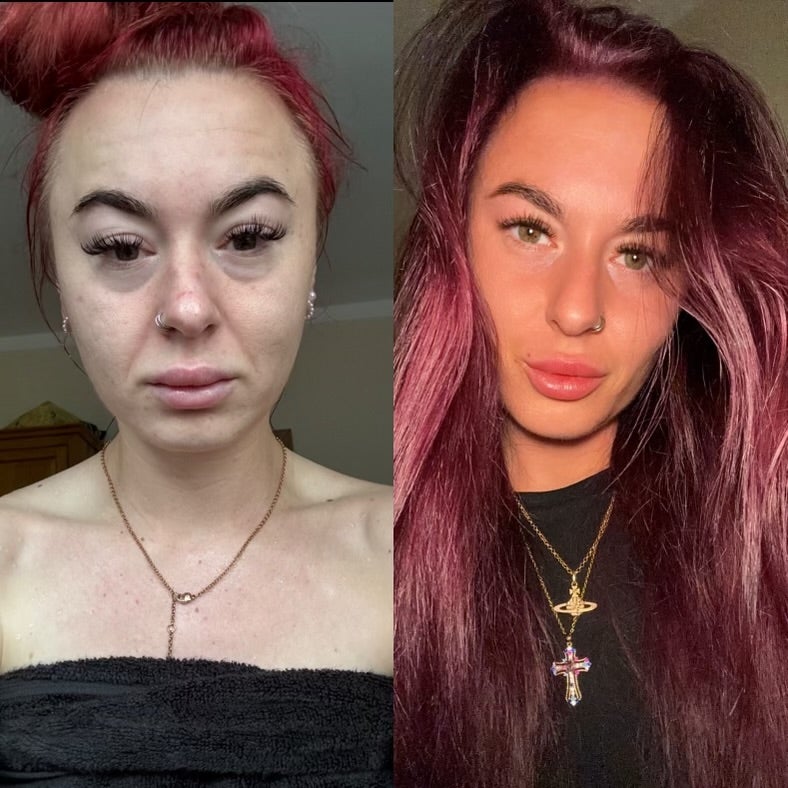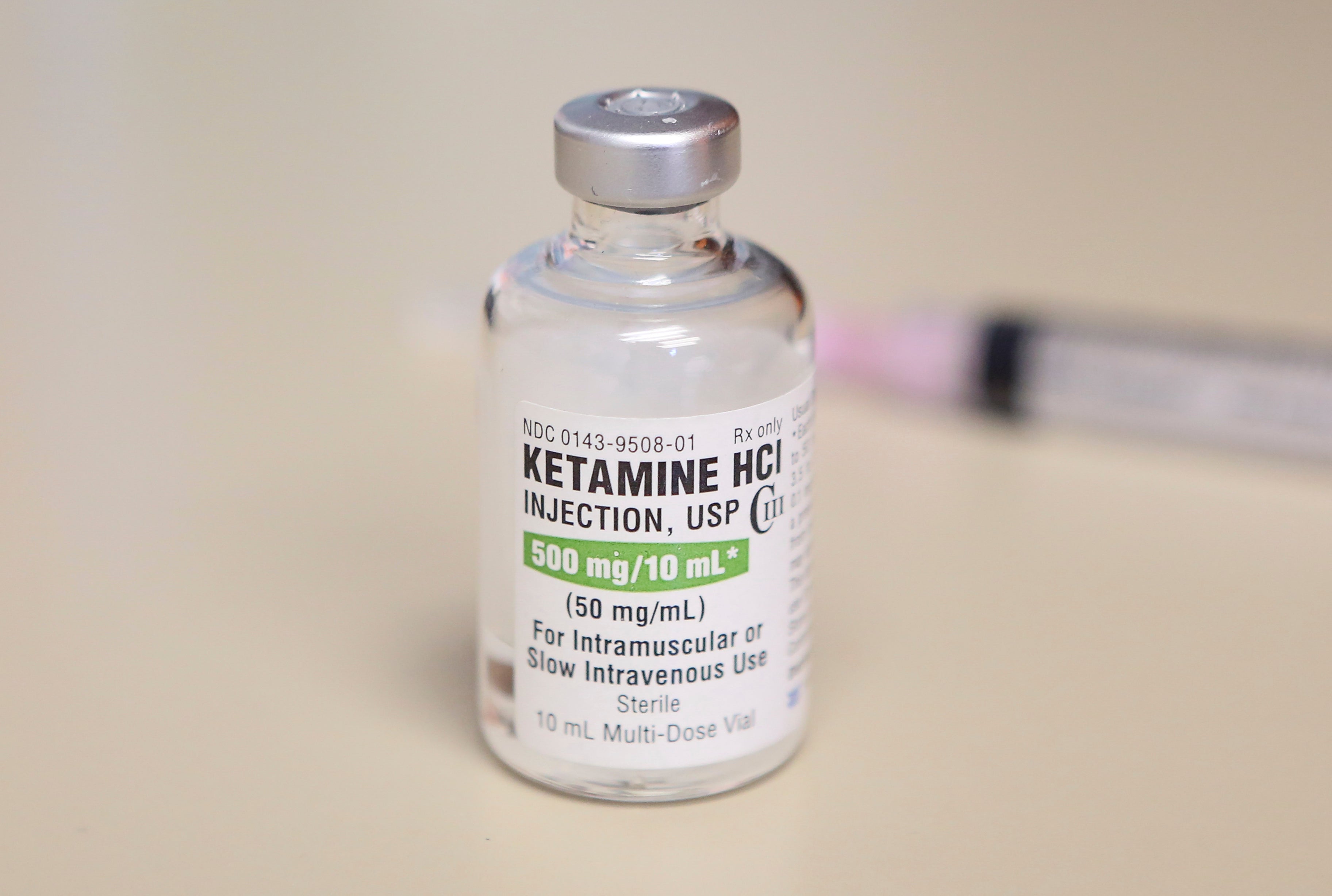‘I wish I’d never taken it’: More young people seeking rehab as ketamine addiction spirals in the UK
Casey Innalls was left in excruciating pain and was hospitalised for 12 days with a condition known as k-bladder

Your support helps us to tell the story
From reproductive rights to climate change to Big Tech, The Independent is on the ground when the story is developing. Whether it's investigating the financials of Elon Musk's pro-Trump PAC or producing our latest documentary, 'The A Word', which shines a light on the American women fighting for reproductive rights, we know how important it is to parse out the facts from the messaging.
At such a critical moment in US history, we need reporters on the ground. Your donation allows us to keep sending journalists to speak to both sides of the story.
The Independent is trusted by Americans across the entire political spectrum. And unlike many other quality news outlets, we choose not to lock Americans out of our reporting and analysis with paywalls. We believe quality journalism should be available to everyone, paid for by those who can afford it.
Your support makes all the difference.“I felt like I was walking on the moon,” is how Casey Innalls recalls her initial impression of the Class B drug ketamine, which she first tried at the age of 16.
What initially began as a weekend habit with friends or at the pub soon became an all-consuming addiction, which has left her in excruciating pain with severe damage to her bladder.
Now aged 27, Casey is among the rising number of young people being admitted to rehab due to ketamine abuse, with specialist clinics and the NHS reporting a significant increase in recent years.
According to government data on drug misuse in 2005, only two per cent of 16- to 24-year-olds had tried it, yet by 2020 this figure had tripled, with more than one in 20 young people admitting they had consumed it.
Specialists believe one of the key reasons ketamine is on the rise is due to the cost of living crisis, which has seen users turn to more affordable drugs than cocaine and alcohol.

Lee Fernandes, lead therapist at the UK Addiction Treatment Centres (UKAT), said: “We’ve seen around a 35 per cent rise in under-30s being addicted to ketamine and seeking rehab treatment for it. And in particular in the last 12 months, we’ve seen an influx of young women needing urgent treatment as the side effects of the addiction become extremely damaging."
One in three of the young people they treat for ketamine addiction is also suffering with what’s known as k-bladder: a condition that affects and shrinks the lining of the bladder due to chronic usage.
Casey had initially suspected she had pancreatitis when she found herself screaming and crying in agony with stabbing pains in her lower stomach.
She began by experimenting with ketamine, but by 2022 she was dependent on it and consuming it on a regular basis. “Around two years ago I went downhill, I was taking it all the time,” she said.
“I was getting k-cramps, awful abdominal pain and it is absolutely excruciating. It feels like your whole chest is being crushed, I’d be rolling on the floor and couldn’t breathe. I was doing anything to get rid of the pain, having five or six baths a day and using up 60 hot water bottles a day.”

It led her to be hospitalised for 12 days on “death’s door”, and has now left her with damage to her bile duct and to her liver, among a number of other health complications.
“My bladder started deteriorating, I was peeing out my bladder lining and had bladder in my urine and protein, as well as kidney infections. If I’d known what it was going to do to my body, I’d never have taken it.”
Dr Mohammed Belal, a consultant urologist who represents the British Association of Urological Surgeons, said that often ketamine users are unaware of the risks until they cause “irreversible” damage, which often leads to major surgery.
He stressed that part of the issue with ketamine, which is known as a horse tranquilliser but is also widely used by the NHS as an anaesthetic, is popular for its dissociative and pain-relieving qualities.
“People fail to connect the dots,” he said. “ Ketamine causes them a lot of pain, but because it is also a pain relief medication they take more of it, and the situation worsens.”
As tolerance is known to build quickly, and ketamine, which comes in crystalline powder or liquid form, is cheap, young people are rapidly becoming addicted while there is little education available on its life-changing effects.”

With addiction becoming more prominent in younger adults, specialists have attributed it to a number of reasons, including the cost of living crisis, isolation during the pandemic and delays in accessing mental health services.
Speaking to The Independent, senior treatment adviser Scott Ardley of Rehabs UK said: “I see ketamine on a daily basis now, but this was not a daily occurrence a few years ago. I now call it a dominant drug in line with alcohol, it has crept up predominantly among young people and is now taking centre stage.”
He stressed that while it is often put in the same category as other drug addictions, such as cocaine, ketamine has a unique set of “horrible” physical side effects which are not commonly acknowledged.
“We have a lot of women reaching out to us,” he said. “We see both men and women, but we’ve seen a rise in females using it to cover up mental health issues.”
Mr Fernandes added that it was now being sold outside schools for “pocket money” prices, stressing: “This country is at a crisis point when it comes to ketamine now.”
For Casey, her addiction led her to the brink of despair, until she contacted her local drug and alcohol help hub.
“It got to a point where I didn’t want to live anymore, I had fully accepted that my addiction was going to take me,” she said. “I was in so much pain, it was a Catch 22.”
In a bid to turn her life around, she has now entered a rehab facility which she has described as “absolutely amazing”. She is now over 50 days sober and is fundraising towards continuing her journey to recovery.
She said: “It’s the best thing I’ve ever done. I was selfish and inconsiderate but admitting that you are powerless over your addiction and seeking help is the biggest thing you can do.” She now hopes to help others with their addiction, and has begun a TikTok page @kcskaddiction educating others on the dangers of ketamine.
“All I can say is that for the people who are doing ketamine, be careful because it’s a slippery road and the best thing someone can do is reach out for help. It’s a hard journey and I don’t want anyone to go through what I’ve been through.
“I wouldn’t wish it on my worst enemy.”
Join our commenting forum
Join thought-provoking conversations, follow other Independent readers and see their replies
Comments